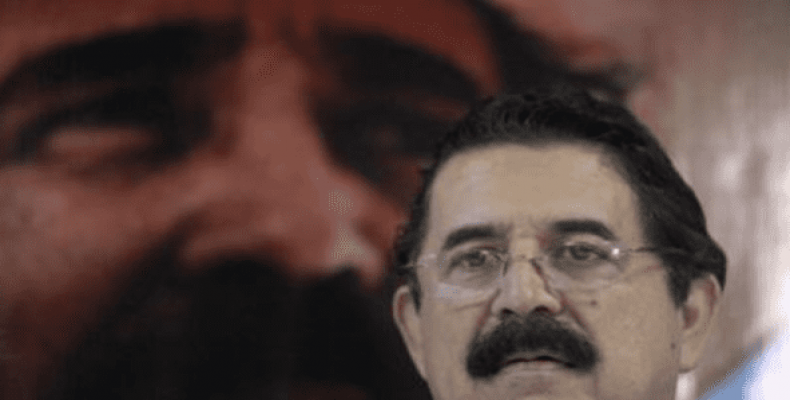Edited by Pavel Jacomino
2018-04-17 15:44:39
Facebook
Pinterest
Telegram
Linkedin
WhatsApp

Tegucigalpa, April 17 (RHC)-- In Honduras, former presidential candidate Salvador Nasralla and former Honduran president Manuel Zelaya announced today the Opposition Alliance will continue and more protests are on the horizon.
Liberty and Refoundation, or LIBRE, and Innovation and Unity Party (PINU) -- the two main parties that make up the coalition -- say they’ll remain aligned against the controversially re-elected president, Juan Orlando Hernandez, and the U.N.-mediated talks meant to reconcile political differences within the country. Additionally, the political leaders on hand, who also included Nasralla’s former running mate, Xiomara Castro, say they’re going to recruit some 10,000 “commandos” to eliminate political fraud within Honduran elections.
"I applaud Salvador Nasralla who left that trap," said Manuel Zelaya, current secretary general of the Opposition Alliance, in reference to the U.N. talks. Zelaya punctuated today that he’s not against the dialogue but, he said, "I don’t want to enter that game with the United States and this government." The former president was ousted in 2009 in a coup backed by conservative nationals and the U.S. government. Zelaya added: "The alliance will only participate in talks with an international mediator present."
Nasralla had sent a representative to several "pre-dialogue" meetings to the outright consternation of Zelaya. The meetings were meant to calm political rifts and to focus on the government’s human rights violations at the hands of the Hernandez administration, and attending were members of the current government, lesser political parties, and a U.N. diplomat. The former alliance candidate was hoping the pre-dialogue sessions would include talk of electoral fraud and that the talks would become binding. "Whatever is agreed upon ... becomes law." He took his request to the Honduran Congress but it was rejected.
The Opposition Alliance has continually alleged fraud and called for new, clean elections as strong evidence indicates that Nasrall was the clear winner, but electoral authorities gave the presidency to Hernandez. A March U.N. report says that at least 16 electoral protesters were killed at the hands of state security forces between November 26 -- the day of the presidential polls -- and January 27, when Juan Orlando Hernandez was sworn in for a second time.
Demonstrations have quelled since January out of fear of assassination or being taken as a political prisoner, 26 of which have been held in maximum security prisons since that time. The coalition is also gearing up for protests against Hernandez, but specific dates weren't announced.


